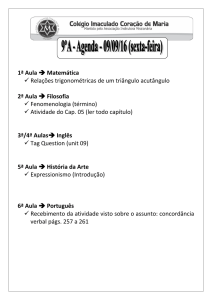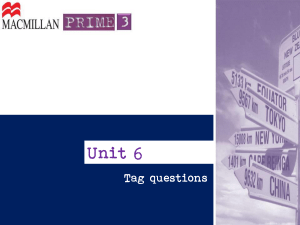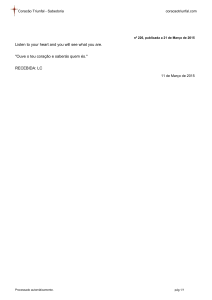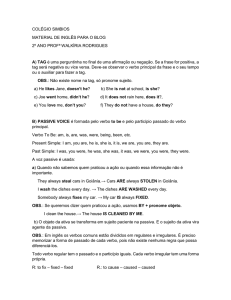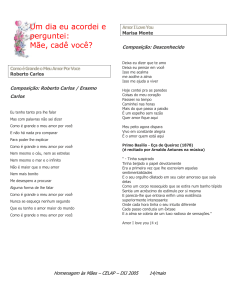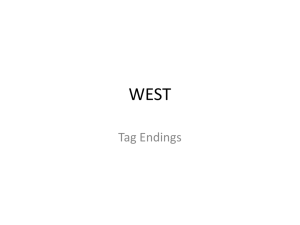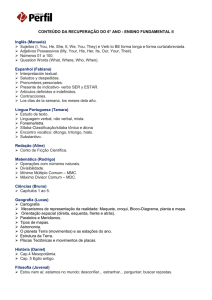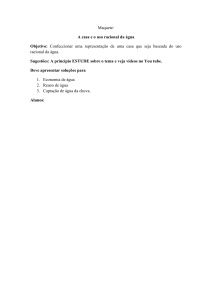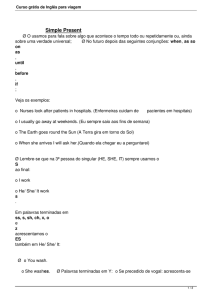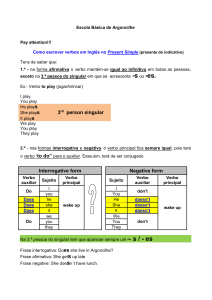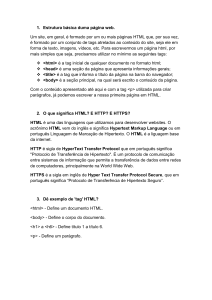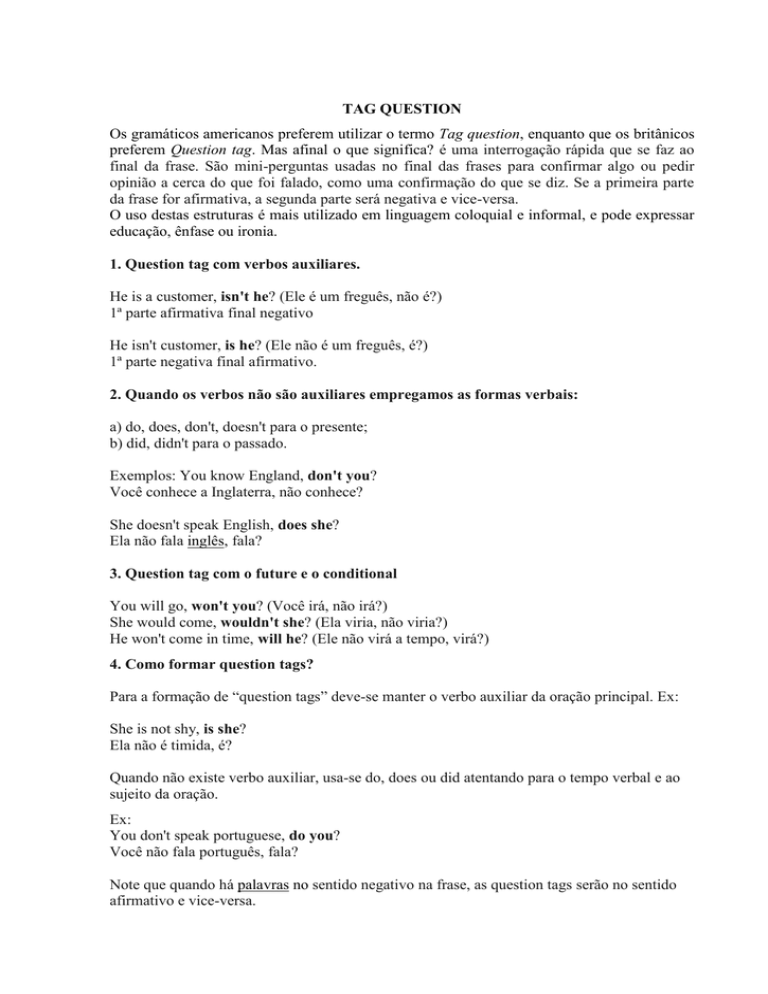
TAG QUESTION
Os gramáticos americanos preferem utilizar o termo Tag question, enquanto que os britânicos
preferem Question tag. Mas afinal o que significa? é uma interrogação rápida que se faz ao
final da frase. São mini-perguntas usadas no final das frases para confirmar algo ou pedir
opinião a cerca do que foi falado, como uma confirmação do que se diz. Se a primeira parte
da frase for afirmativa, a segunda parte será negativa e vice-versa.
O uso destas estruturas é mais utilizado em linguagem coloquial e informal, e pode expressar
educação, ênfase ou ironia.
1. Question tag com verbos auxiliares.
He is a customer, isn't he? (Ele é um freguês, não é?)
1ª parte afirmativa final negativo
He isn't customer, is he? (Ele não é um freguês, é?)
1ª parte negativa final afirmativo.
2. Quando os verbos não são auxiliares empregamos as formas verbais:
a) do, does, don't, doesn't para o presente;
b) did, didn't para o passado.
Exemplos: You know England, don't you?
Você conhece a Inglaterra, não conhece?
She doesn't speak English, does she?
Ela não fala inglês, fala?
3. Question tag com o future e o conditional
You will go, won't you? (Você irá, não irá?)
She would come, wouldn't she? (Ela viria, não viria?)
He won't come in time, will he? (Ele não virá a tempo, virá?)
4. Como formar question tags?
Para a formação de “question tags” deve-se manter o verbo auxiliar da oração principal. Ex:
She is not shy, is she?
Ela não é timida, é?
Quando não existe verbo auxiliar, usa-se do, does ou did atentando para o tempo verbal e ao
sujeito da oração.
Ex:
You don't speak portuguese, do you?
Você não fala português, fala?
Note que quando há palavras no sentido negativo na frase, as question tags serão no sentido
afirmativo e vice-versa.
OBSERVAÇÕES
1. Fique atento para sempre utilizar pronomes no lugar de nomes.
Ex:
John works here, doesn't he?
Not: John works here, doesn't John?
2. Quando o sujeito da frase principal for that, no one, somebody, something, utilize it para
compor a tag question.
Ex:
I think that's a good idea, isn't it?
3. Quando o sujeito da frase principal for no one, somebody, something, utilize it quando a
tag question se refere a alguma coisa ou nada.
Ex:
Something happened at Paul's house, didn't it?
E utilize they quando a tag question se refere a alguém ou ninguém.
Ex:
No one phones Mary, do they?
Somebody wanted to borrow Jack's bike, didn't they?
4. Se a oração começar com I am a tag question será aren’t I.
Ex:
I am right, aren't I?
É preciso prestar atenção à entonação!
A tag question tem entonação crescente quando você fizer uma pergunta para obter uma
informação:
Ex:
Dan Brown wrote the Da Vinci Code, didn't he?
A tag question tem entonação decrescente quando você expressar uma opinião e espera que
seu interlocutor concorde com você.
Ex:
The Da Vinci Code is an exciting book, isn't it?
+
Positive statement,
negative tag?
Ex: Snow is white, isn’t it?
Negative statement,
+
positive tag?
Ex: You don't like me, do you?
Look at these examples with positive statements:
positive statement [+]
negative tag [-]
subject
auxiliary
main
verb
You
are
coming,
are
n't
you?
We
have
finished,
have
n't
we?
You
do
like
coffee,
do
n't
you?
like
coffee,
do
n't
you?
You (do) like...
won't = will not
You
auxiliary not
notes:
personal
pronoun
(same as
subject)
They
will
help,
wo
n't
they?
I
can
come,
can
't
I?
We
must
go,
must
n't
we?
He
should
try
harder,
should
n't
he?
You
are
English,
are
n't
you?
John
was
there,
was
n't
he?
no auxiliary for
main verb be
present & past

